LA HARNEALĂ*
A show by Mihaela Drăgan and Mihai Lukacs
Starring Mihaela Drăgan, Gabriela Dumitru, Marian Dumitru, Claudiu Eremia, Cristina Eremia, Alexandrina Fieraru, Andreea Fieraru, Cornelia Ioniță, Marian Ioniță, Mihăiță Ioniță, Mihai Lukacs
An independent show produced by Bomba Studios, Rahova-Uranus.
With the help of tranzit.ro/Bucharest.
* harneală in the Romanian Dex
harneală 1. irony, mockery; a bad joke 2. simulating illness in order to avoid completing a task
The play had its debut in October. “Lawyers, the real estate mafia, law executors, mayors, secretaries, affective speculators, opportunist artists – they are all over the houses in the Bucharest area of Rahova Uranus, a hot area for real estate, where hundreds of people have been or will be evicted. The evicted women and their children, together with Mihaela Drăgan, examine each step of the process that led them to lose the roof over their heads and the profitable business of destroying a community.
Thank you Mihaela Drăgan and Cornelia Ioniță for accepting my invitation to tell us more about the show.
SIMONA: What is the frame work that you two, as well as the rest of the team, decided to collaborate in this project, in making a play that would tell, through your voices, part of the realities of the forced evictions in Rahova – Uranus? These are events and injustices that you personally went through, which make it that much harder to put together these very recent personal histories… Tell us a little bit about how LA HARNEALĂ came to be.
CAMI: Well, we were talking amongst ourselves about this situation of ours, our children where already involved in artistic projects, so we, the mothers, wanted to do something as well. So we decided to make a play that tells our story, the story of being evicted. That we were or that we will soon be evicted is something people should know. We want to talk about the problems in our community and that nobody takes you seriously no matter where you go. “La Harneală” is the second show we made about eviction and we want as many people as possible to hear us out. So we came forward to the artists about making a play. This was our idea.
In LA HARNEALĂ we perform our precise realities, the things we’ve been through. It was hard, but we overcame it.
We worked together and for me it was difficult to memories all the lines and I often got frustrated because I couldn’t memorize them perfectly, put everything together. But I tend to improvise a lot, I add my own lines, so in the end it all worked out.
MIHAELA: The play was the initiative of the women within the community Rahova-Uranus. We all knew each other. Mihai (Mihai Luckacs, director of the play) and I were protesting against evicting the families of the neighborhood, we became friends with the women of the community that faced these abuses along with their families. They first came to Mihai to help them direct the show and then thought of getting me involved, me being an actress. We all worked together and a lot of the situations presented in the show were suggested by the women because they knew exactly what they wanted to share with the rest of the world.
CAMI: There are times where I feel like laughing when I think about all I’ve been through, but other times I feel like crying. Sometimes I can’t even believe it (that last year I spent 4 months in the street, after being evicted).
The play is called LA HARNEALĂ because we used to laugh a lot during rehearsals, we were improvising and remembering what we went through when we got evicted. Making fun of the whole matter. The authorities made fun of us when we asked for their help and now we make fun of them in this show.
SIMONA: Projects that claim to discuss racial or social discriminatory issues are often overthrown by privileged individuals (racially and socially); I think that this happed a lot with projects carried out by La Bomba Studios, and on more than one occasion, I personally perceived it that way… For example, I always found it strange that for a collaborative show like La Bomba fashion show that took place in Modern (Feb 2013), their FB event page named absolutely every single person that contributed to the fashion collection, the show, whereas in your case you, the women of Rahova-Uranus that made this artistic and activist show take place, are generically called “the strongest female presences in the community” or “the protagonists”. What do you think of these aspects? Is La Harneală an effort to leave this pattern that we see too often behind?
CAMI: I don’t have a FB profile but I wouldn’t feel insulted or used, I only want my story to be heard. During the fashion show I was on the brink of being evicted and I was at my wit’s end, it was all I could think about, that I was gonna be evicted so I didn’t really think about this aspect. I never felt like they took advantage of us, on the contrary: the played with the children, the kids would all gather around, play the drums, they even organized a birthday party for one of the children from the neighborhood, and it was very nice. It was the same with LA HARNEALĂ. We used to do the same thing then that we do now, we took the interviews, we were the first in line.
SIMONA: You step on stage with your personal tales, while Mihaela plays the part of the trainer who teaches the public/class about cheating strategies in the real estate industry. What is the current situation in the area? I know a part of the people living there are contributing to FCDL – a non-profit organization that aids other people that have been evicted. What would be the best thing that we could do to aid you in your efforts? What should a privileged white person do after seeing your show?
MIHAELA: I would like to clarify a few things. I don’t play the part of trainer that teaches the audience about cheating strategies, I have an absurd-satirical role, highlighting the eviction situation which is absolutely illogical and illegal, turning people’s rights into non-rights. So in the show I make up this absurd training program about how to become evicted. But if you, as a spectator, position yourself on the abuser’s side of things and not on the evictee’s side, there’s no problem. In the midst of this social chaos where all rights are being violated, we promise to give you a lesson in becoming a fraudulent landlord. You no longer have to hide your wrong doings because the whole corrupted system will quietly approve of them – this is what inspired us to build an illusory frame in which such a training program could be legal and public since we live in a world where our rights are not defended.
CAMI: The current situation is critical because March is rolling in and for us, March is a very dangerous month because a new series of evictions is about to start. And my thoughts go to Cristina (Eremia, one of the women in the show) and Nuți (Marinescu, also in the show), to everyone in the neighborhood. I don’t know how we’ll respond to this because a new wave of evictions is about to begin this spring. I don’t know what we’ll do. We made this show in anticipation of all this, we know what’s coming and we hope it has an impact.
It’s great to have an organization like FCDL but they can’t do anything, they have no power. It’s good that they organize meetings and that they help us out, they’re by our side and support us because this is what we wanted: solidarity. But that’s it, that’s all they can do. If they had more power, they would do more.
I wish someone from upstairs would show up, hear our story, that we were all united and tell us: “I’ll give you a 4 story building for the whole community”, someone who won’t separate us, who will look at our papers and see that we’ve been evicted even though we always paid our rents and taxes, and offer us a building of social housing for all 20 families. Someone who will say: “because you have all been solidary, I will put all of you in the same place”. We expect support from everyone else, that’s all. We want people to be by our side, the evicted, to come to protests, to meetings, to spread the word for other evictees to come, for all of us to be united. I don’t think it’s hard for someone to support us. Any person with a big heart can empathize with us, it doesn’t matter if they’re Romanian or Roma, we are all people.
SIMONA: What are the most interesting reactions from the public that you would like to share or comment on? How were the discussion that followed the play? And where is the play going to take place next, what will follow?
MIHAELA: The play took place only 3 times, but we had very interesting reactions. Especially at Mizil, where we performed for the Roma community, mostly children. Although there were issues hard for a child to understand, they got the gist of it and at the end they left their seats and came up on stage and sang with us the “Evictee’s hymn” that we wrote for the show: “We want houses for everyone/ Not just for the Mafia!”. It was very powerful and they emanated so much energy. We hope to get the same reactions from the public in Bucharest, the show was conceived as such, with direct dialog and no theatrical conventions.
CAMI: The reactions were good so far and the people really emphasized with our situation and I felt that the show was worthwhile, this is how the word is spread.
I hope that this story travels far and reaches someone with power that can help us in one way or another. This is what I dream of… now you know what it’s like.
I’d like people to know about my own situation, that the mayor gave me a house after I spent 4 months in the street, and after 2 years I still don’t have the papers for this house. I plead with him every month, I go to hearings, and wherever I went I’ve been hearing the same thing for 2 years: be patient, keep waiting. I can get kicked out of this place at any time. And besides, I got this house after I made a scene at city hall more than once, but until then no one paid attention to me. And I’m scared that any day now, someone else might get the house and I will be left in the streets again. I have no rights.
POSTED BY
Simona Dumitriu
Simona collaborated until 2015 with Ileana Faur, Marian Dumitru and Claudiu Cobilanschi at Spațiul Platforma, an artist-run space supported by the National Museum of Contemporary Art / MNAC in the An...
www.poetrybody.wordpress.com

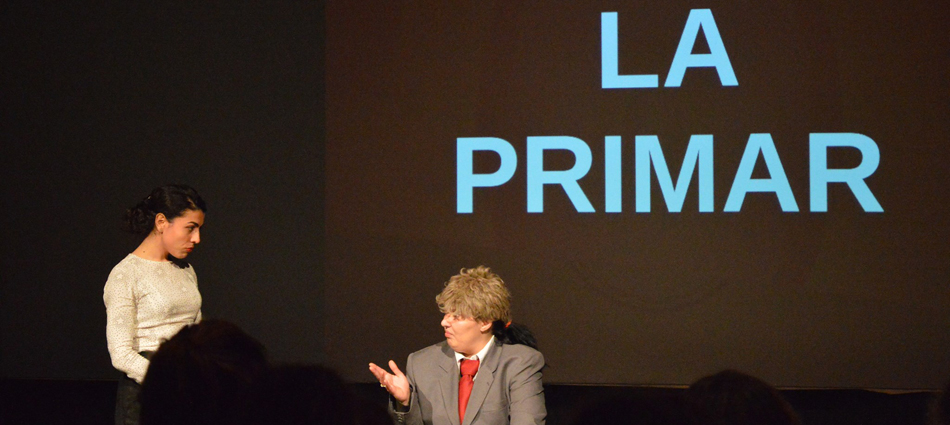
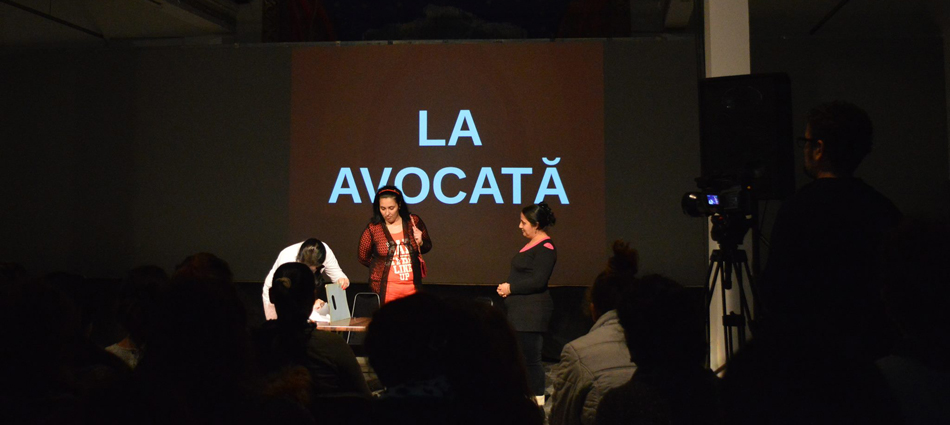
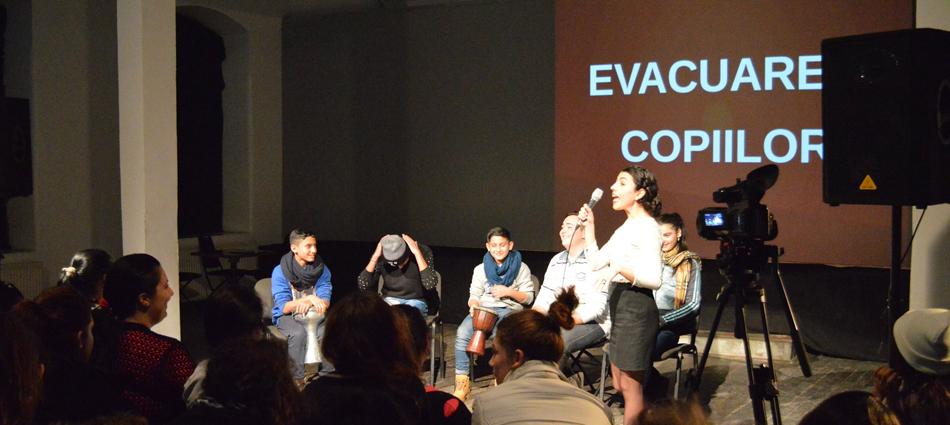
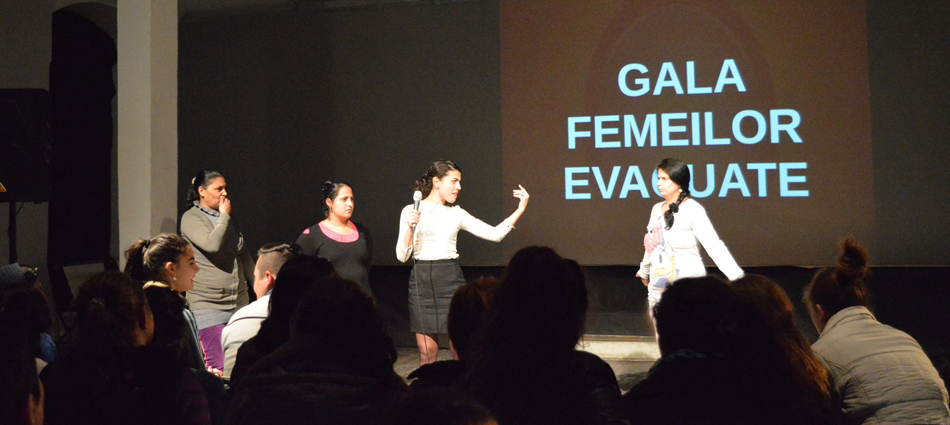
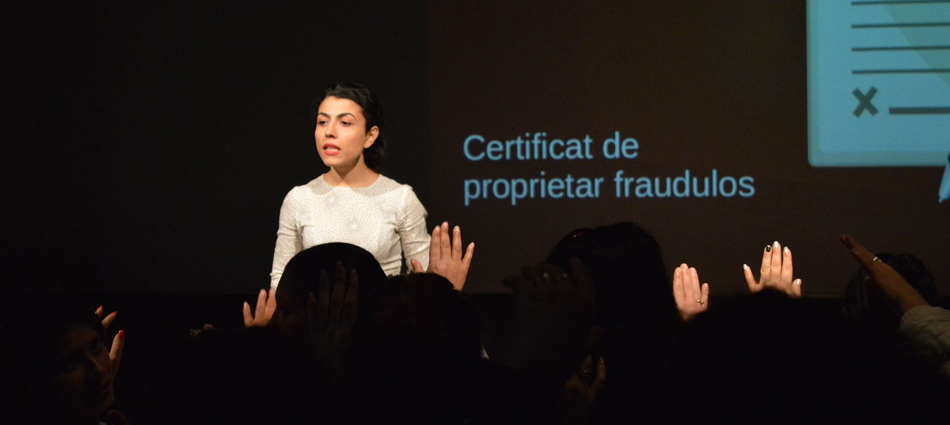

Comments are closed here.